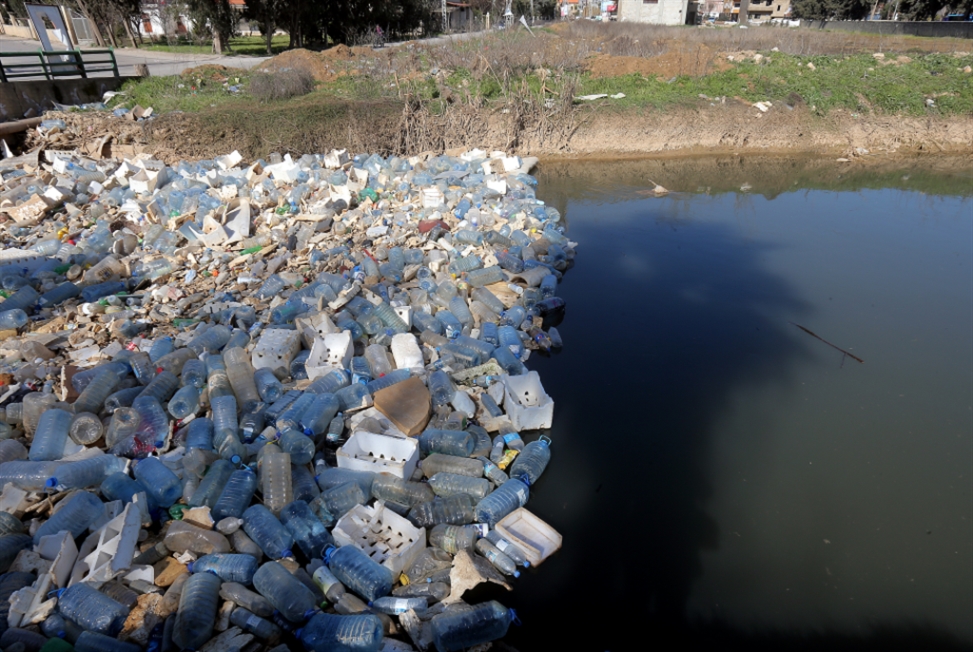And the rationale for unification at an international convention on plastic waste is that the risk of plastic pollution is roughly equal to the risk of climate change, and microplastic particles are found in air and soil around the world, as well. in the oceans and in the snows of the Arctic, and it is the leading cause of death. many species of animals on land and sea. The report, to be presented to the United Nations General Assembly on the Environment, indicates that “the amount of plastic expected to be found in the seas by 2040 could exceed the total weight of fish in the ocean.” While another study estimates that each person can consume nearly a ton of plastic materials in their various forms!
Is this data enough to include a UN -sponsored agreement with binding targets to reduce both plastic and waste production as part of this waste?
The United Nations has previously identified three “existential” threats to the environment, such as climate change, biodiversity loss and pollution, and has decided that they need to be addressed collectively. It has been nearly 30 years since multilateral agreements have addressed these issues, with no success in stopping carbon emissions or protecting biodiversity, stopping species extinction and reducing pollution. So what can the new plastic deal achieve?
The conversation about unseen plastic pollution has caused global concern and major international campaigns aimed at pointing out the damage caused by overproduction of “original” plastic and its irreversible life cycle, as well as its threat to the planet’s ability to maintain a habitable environment. Supporters of an international agreement on the matter are calling for a focus on a full life cycle study of plastics to achieve unsustainable levels of production and consumption, and not just policies that encourage in the use of “recyclable” plastics. Because this policy will not be effective in the absence of local infrastructure for the collection, classification and recycling of plastic materials, as well as in the absence of appropriate infrastructure for the use of plastic materials that can be processed in organic materials and fertilizers.
Every person has consumed almost a ton of plastic in their lifetime.
However, these ideas still ignore the source of the problem and the intellectual background that promoted this lightweight, soft and hard material at the same time and introduced it to lightweight industries such as transparencies, clothing, shoes and toothbrush… and small details. such as cars, water pipes, electrical and electronic appliances… Will an international agreement be satisfied on how marine wastes are managed in general, or will it include testing the entire life cycle of plastic from extraction to production, consumption .. .to the revision of the existing market economy system? And if the world manages to end such global rules in an agreement (and it probably won’t), who can guarantee that all company-states will follow them? Notice that some are beginning to fear that there are no rigid standards for equal opportunity, similar to how the Framework Convention on Climate Change failed 30 years ago to set fair, comprehensive and binding global standards for all. , in a free universal. market economy in which companies compete to the death for resources and markets.
Is Lebanon ‘importing’ hazardous wastes?
How can a consuming and exploitative country like Lebanon, where the state has collapsed and is increasingly exploited by traders and companies, engage in a global agreement to tackle plastic waste?
In the Waste Management Law of 2018, Article 26 includes a unique clause on “import, export and movement of hazardous wastes, which can only be carried out after the approval of the Ministry of Environment.” If it is understandable to discuss how to “export” hazardous wastes that Lebanon cannot recycle (knowing that most hazardous household materials are imported and must be returned to their producer), then the reason for the passage of this law, which provides for the possibility of “importation” of hazardous wastes, is not clear. , especially since the classification rules now need to be changed and changed, especially after the explosion at the port and the discovery of the stored materials that really shows how dangerous it is.
Environment Minister Nasser Yassin put this article on the agenda of the parliamentary environment committee to consider an amendment to the waste law, along with other articles proposed to put the issue of waste management in altogether on the path to a comprehensive and sustainable solution and leaving chronic emergency plans.
major pollutants
When a convention on plastic waste was proposed many years ago, it met with considerable resistance. But opposition to this trend began to wane when about 100 countries approved such an agreement. However, the debate continues about how strict it is and whether it should be legally valid or voluntary. In the US, for example, there is no guarantee that Congress will approve such an agreement (it was rejected by former President Donald Trump) because of pressure from the oil lobby. Most plastics are made of oil, Japan is trying to reduce the ambitions of the agreement, and China and the Gulf Arab states are quiet.
China produces the most “virgin plastic” in the world and until 2019 is the first importer of plastic waste, while the US leads in the production and export of this waste. It produces the largest volume of plastic packaging sales for soft drinks (e.g., Coca-Cola). The United States and the United Kingdom are also the largest producers of this waste per capita in the world, while Japan, Germany and the United Kingdom are the largest exporters of plastic waste after the United States.
